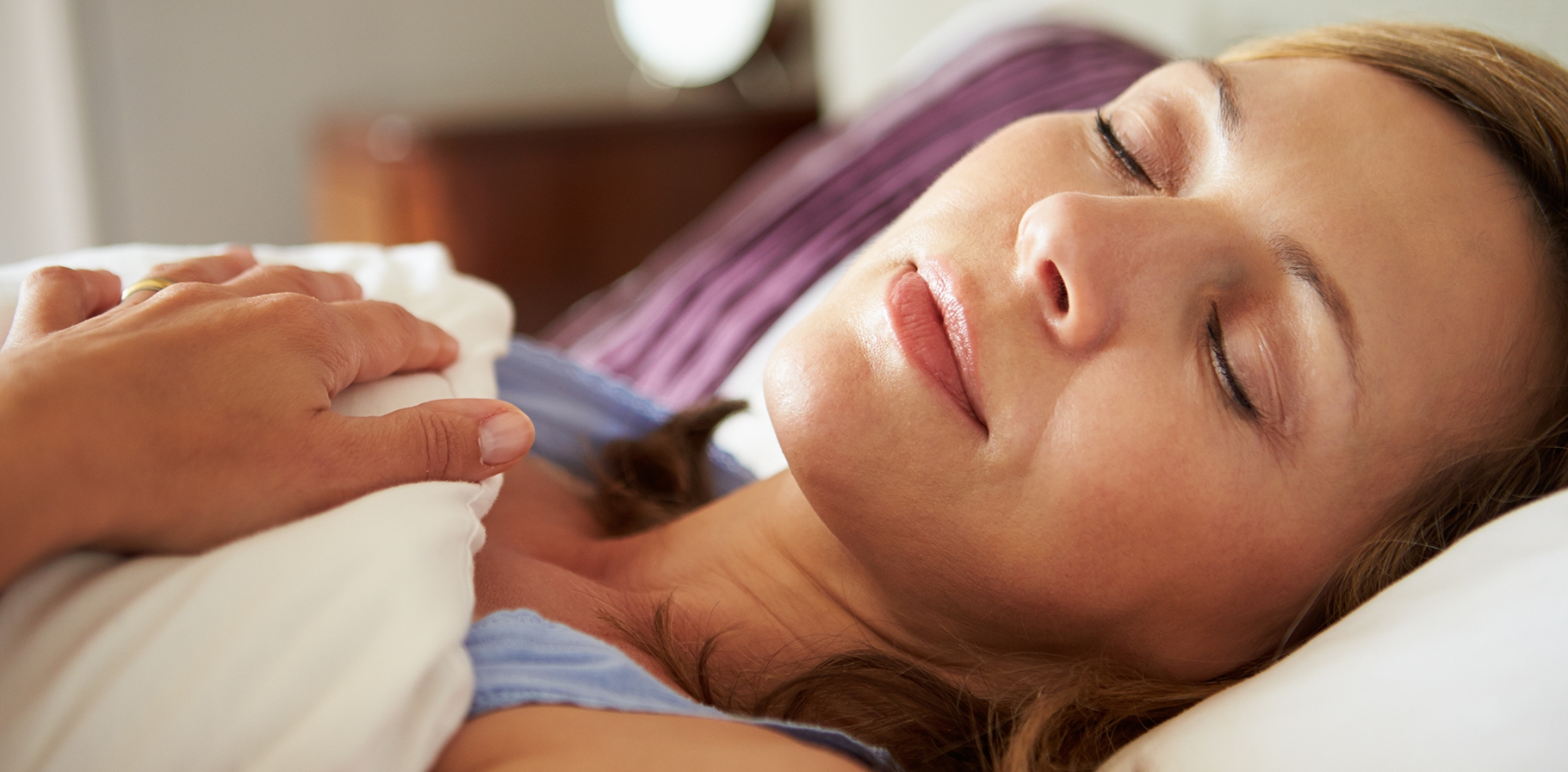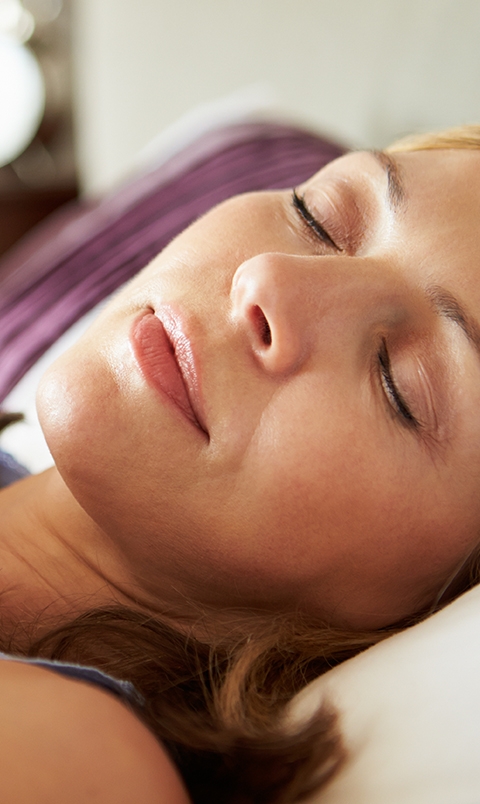How to Get Better Sleep With Tinnitus


How to Get Better Sleep With Tinnitus
10 min
Published January 14, 2025
Tips for Sleeping With Tinnitus for Patients
Tinnitus is a common medical condition in which a person hears ringing, buzzing, or other sounds that do not come from an external source. While the causes and severity of tinnitus differ from person to person, people often report that tinnitus can make it difficult to concentrate during the day and fall asleep at night. For many people with tinnitus, silence makes their symptoms more noticeable at bedtime. Because losing sleep can further exacerbate tinnitus and increase stress and anxiety, people with tinnitus need to find ways to cope with nighttime symptoms. Fortunately, tinnitus can often be managed, and several strategies may help reduce the symptoms you experience.
At AudioNova, we’ve helped countless patients achieve better hearing health and a more enjoyable quality of life. With hearing care centers located throughout the US, we’re just around the corner with all the hearing care services you need under one roof. Contact us today to learn more and schedule a one-on-one consultation with our providers.
White Noise
Many experts suggest using white noise to mask the sound of tinnitus. Ambient noise can distract from tinnitus sounds and make it easier to fall asleep. Simple ways of producing white noise at bedtime include:
- Gentle music from a bedside speaker
- A sound machine
- An overhead or bedside fan
- Turning on a humidifier or dishwasher
Using pleasant or calming sounds, such as rain or the ocean, can also help distract the brain from tinnitus. Because loud sounds can cause tinnitus and worsen it, it’s essential to protect hearing by keeping the volume of white noise low.
Elevate Your Head With a Pillow
Various medications and medical conditions, including loud noises, hearing loss, and ear infections, can cause tinnitus. In some cases, congestion from inflammation or mucus can contribute to symptoms. In these cases, it may be helpful to elevate the top of the bed or prop up the head with pillows to reduce congestion.
Stick to a Nighttime Routine
Creating a regular bedtime routine can signal the body that it’s time to wind down and prepare for sleep. Consistent habits before bed, like reading a book, avoiding screen time, taking a warm bath, or practicing relaxation exercises, can help people fall asleep faster and get better quality sleep.
Managing stress improves sleep and is integral to living with tinnitus because stress and anxiety can worsen the symptoms. Therefore, incorporating stress-reducing activities, such as meditation or deep breathing exercises, into a bedtime routine can be beneficial. Overall, healthy sleep hygiene can decrease the time it takes to fall asleep and achieve better quality sleep, which has been shown to reduce tinnitus symptoms.
Talk to Your Doctor
Talking to a doctor about new, persistent, or bothersome tinnitus is essential. A doctor can perform tests and order imaging studies to look for the underlying cause of tinnitus and recommend treatments to reduce the severity of symptoms.
Sometimes, tinnitus goes away without treatment. However, several treatment options for tinnitus require a prescription from a doctor. For example, tinnitus maskers are prescription devices that fit like a hearing aid. The device masks the unpleasant sounds you hear by sending soft and consistent noise into the ear canal. Although medications aren’t commonly used to treat tinnitus, doctors may recommend medications and other treatments for insomnia, depression, and other issues caused by tinnitus.
Limit Screentime Before Bed
Your body has an internal cycle known as the circadian rhythm. When we’re awake during the day, sunlight causes our bodies to secrete daytime hormones. At night, the brain secretes a hormone called melatonin, which signals it’s time to lie down and sleep.
Unfortunately, the blue light emitted from our phones, televisions, and other screens mimics sunlight and causes the brain to stop producing melatonin. Watching television, playing on your phone, reading on your tablet, or working on your computer can all negatively affect your sleep patterns. Turning off all backlit screens for at least 90 minutes before sleeping is ideal.
Write Down All Your Thoughts & Ideas
Racing thoughts cause many people to lose sleep or take longer to fall asleep. The endless mental chatter we often experience usually results from trying to simultaneously hold too many thoughts in our minds. We’re mentally juggling random tidbits of information and ideas we want to remember, making it more difficult to fall asleep and stay asleep. When you experience tinnitus symptoms, the intrusive thoughts only worsen the problem.
Writing down your thoughts on a piece of paper before falling asleep is one of the most effective ways to quiet your thoughts and calm your mind. When all your thoughts and ideas are written down, they can be released from your mind more efficiently, allowing you to fall asleep more quickly. In addition to writing down any random thoughts, making a to-do list for the next day and any negative or intrusive thoughts related to tinnitus can be especially helpful.
Reduce Your Alcohol, Tobacco, & Caffeine Intake
Caffeine is a stimulant in coffee, tea, chocolate, energy drinks, and sodas. Consuming caffeine and other stimulants later in the day can interfere with sleep patterns and worsen tinnitus symptoms. Experts advise avoiding caffeine for at least eight hours before bedtime. Both drinking alcohol and smoking tobacco can also worsen tinnitus. Reducing or eliminating these substances is another crucial step in managing tinnitus.
Find a Specialist
A doctor can also refer patients to a treatment center, doctor, or mental health professional specializing in tinnitus. Specialists can provide education and other tools for living with tinnitus, such as cognitive behavioral therapy, retraining therapy, biofeedback, and other treatments.
Contact the Team at AudioNova for Tinnitus Relief Today
Your sleep is important, so getting a hold on your tinnitus symptoms is the first step to achieving better rest. Our hearing care professionals have years of experience providing comprehensive hearing care services at our clinics located throughout the US. We’re passionate about helping our patients hear the world around them more clearly. Contact us today to learn more or schedule an appointment online to schedule a hearing evaluation.




